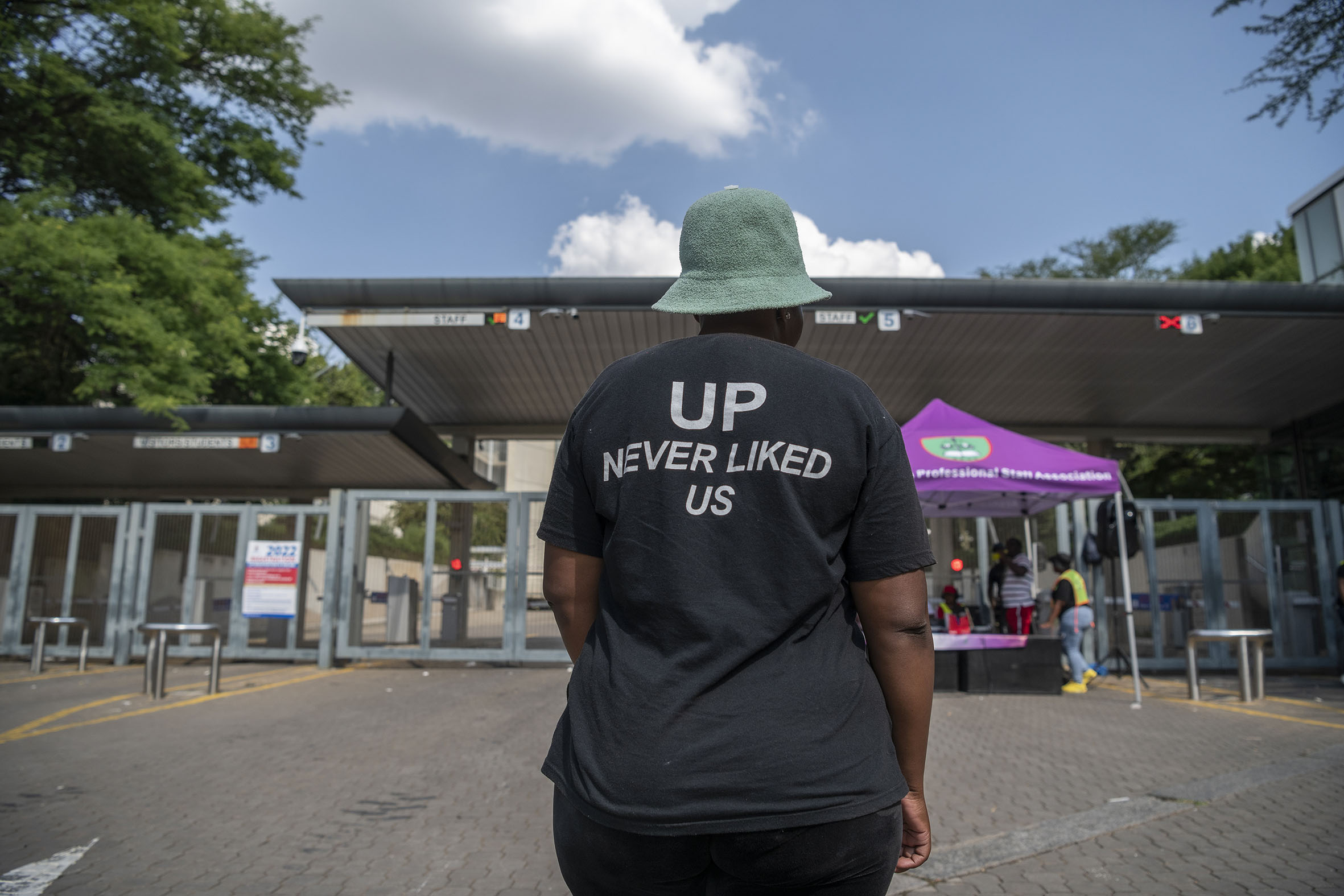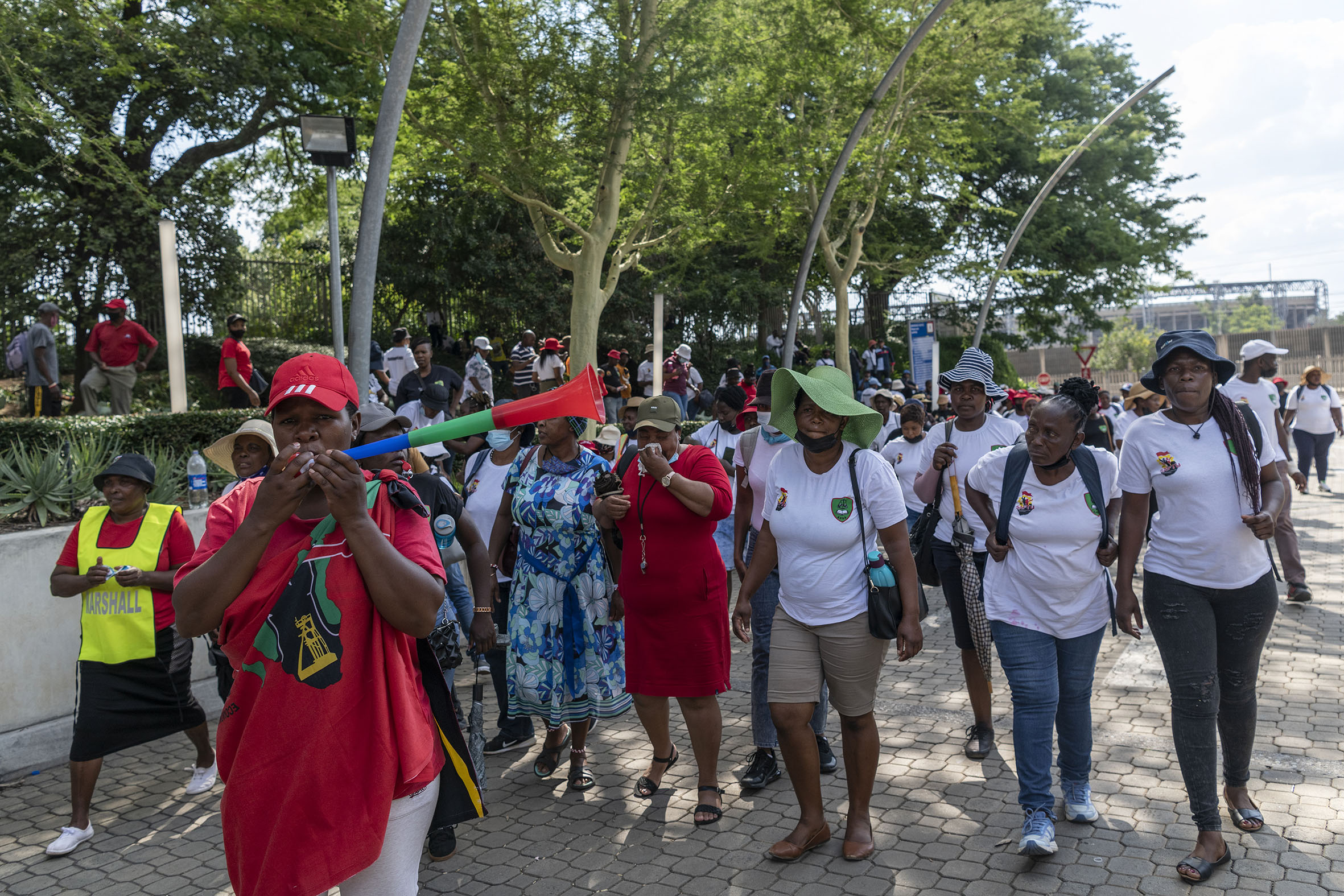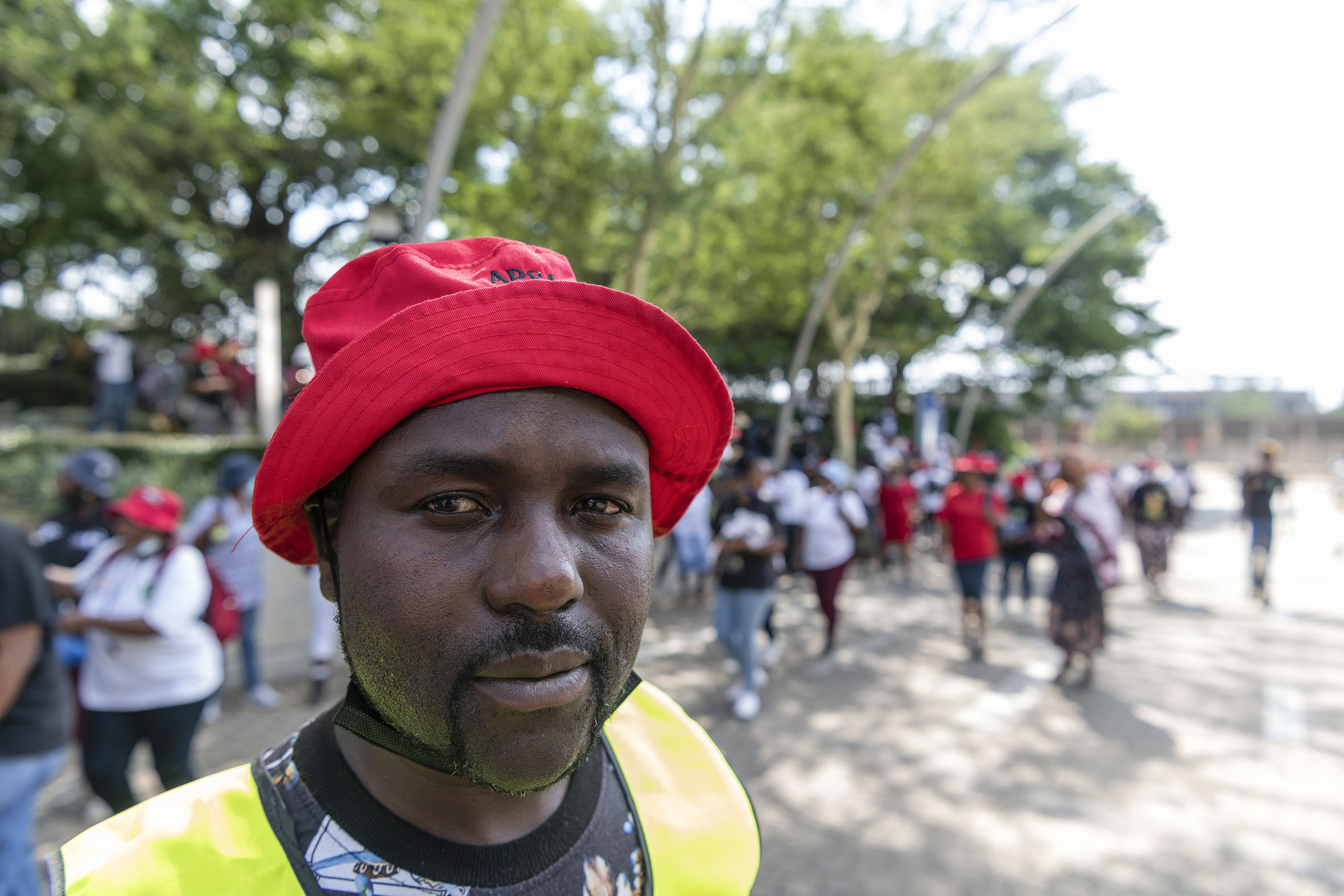University of Pretoria workers want equality
The institute discriminates between long-time workers and those insourced in 2016, say workers. If this does not change within the promised six months, they will strike again.
Author:
10 March 2022

While striking workers at the University of Pretoria welcomed an end to the 13-day industrial action, some are sceptical that the institute will honour the agreement it reached with the Academic and Professional Staff Association (Apsa).
The workers’ demands included a 10% pay increase, a 13th cheque, the rationalisation of jobs grading, childcare facilities and an end to exploitation in the food, security and cleaning sectors.
“The university has committed itself to a process of updating job descriptions and conducting job grading for all jobs, and will prioritise the departments with employees that joined through the insourcing processes. Management undertakes to ensure that this process will be finalised within a period of six months,” says the agreement.
Workers returned to work on Monday 21 February. However, during the strike, workers who were insourced in 2016 said their working conditions were “unfair and discriminatory” in comparison with their counterparts, despite doing the same job.

Sipho Kgaditsi, 27, began working as a security guard in 2014 and France Seema, 34, in 2011 through private companies. They were insourced by the university in 2016, but say poor working conditions led them to join the strike at the Hatfield campus.
Seema says security guards have to work at least 208 hours a month before they qualify for overtime hours and pay. But it’s difficult to reach this target as a roster determines how many hours a month they work. Seema is only able to earn overtime pay “four or five months out of 12”.
Kgaditsi says they haven’t had “a contract of employment since 2016” and Seema says their salaries are not the same as the security guards who had been working directly for the university. Seema says they were also supposed to get educational benefits and housing and car allowances, but “no promise has been met so far”.
Kgaditsi says nothing has changed since the agreement was signed. “I can say it’s just a delay tactic.” Seema says, “The 10% increase also failed. It’s only 5% we are getting, which is a R600 increase. This goes into paying for things like medical aid, and it’s like there’s no increase.”
Showing solidarity
Apsa affiliates under the South African Federation of Trade Unions such as the Food and Allied Workers Union, the General Industries Workers Union of South Africa (Giwusa) and the National Union of Public Service and Allied Workers (Nupsaw) joined the strike in solidarity.
“We are at war for as long as our members are in poverty, are in squalor,” Giwusa president Mametlwe Sebei told striking workers. “We will not accept that there can be any solution other than by wage increases and better working conditions for our members.”
Nupsaw provincial organiser Austin Mofyoa said: “The reality is when workers make demands that are leading to a strike, nothing is for fun.” He added that workers are being punished because their employers are rushing to maximise profits.
Morris Khosa, 38, works as a cleaning facility hygiene controller. He started working at the university through a private cleaning company in 2012, before being insourced by the institution in 2016. A shop steward, he is asking for a 13th cheque and that all workers, whether insourced or not, be treated equally. He says there are two human resources departments, one for the insourced workers and another for those who had been working for the university all along. “That’s the discrimination between the two workers.”

Khosa says the end-of-year function is a good example. Those who were insourced get packages, but their counterparts are taken away to functions. “We are fighting for the conditions of employment to be the same for all staff of the university.”
Khosa says the Apsa agreement is all right, but he doesn’t trust that the university will honour its promises within six months. “The only thing the university must do is just comply with the agreement that they have signed.”
Reaching this agreement is one step towards achieving the workers’ demands. However, Apsa branch secretary at the university Jane Mnguni said, “In the agreement there are time frames, let’s start there. So we did not end the strike but we suspended it, which means when they don’t reach the time frames, then we are going back to the street.”
Management response
University of Pretoria spokesperson Rikus Delport said the institute has extended a number of benefits to insourced staff members since 2016.
“While it isn’t possible to bring the benefits of the insourced staff in line with that of University of Pretoria employees without putting the university’s financial sustainability at risk, it’s important to note that the remuneration is significantly more than the minimum monthly salary rates contained in the main collective agreement of the National Bargaining Council for the private security sector.”
He said the university has aligned remuneration and benefits for its 145 insourced food services employees in accordance with the 2016 agreement, whereby the salaries of all identified contract workers were increased significantly.
Delport added that the food services employees joined the university’s retirement fund in May 2016 and study benefits were implemented for qualifying staff from 1 January 2016.
He said the university insourced 614 security services employees on 1 May 2016 in line with the agreement and more than doubled the shift allowance.
This story was updated on 11 March 2022.
